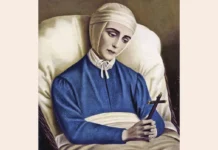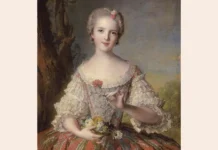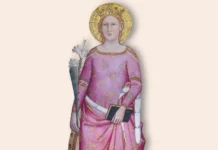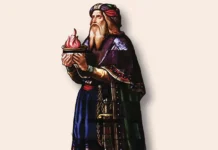No one can deny that God is infinitely good, but Jesus desires that men experience His mercy in a special way, before He comes as Judge. This is the sublime message that St. Faustina was called to live and proclaim.
“My daughter, your heart is My repose; it is My delight”;1 “I have left My heavenly throne to become united with you”;2 “My child, you are My delight, you are the comfort of my Heart. I grant you as many graces as you can hold. ”3
How would we react if we were to meet someone who merited to hear these words from the adorable lips of the Saviour? What love poured out upon a creature! What an intimate and marvellous relationship is conveyed in these profound expressions of affection!
With our overly human outlook, we would undoubtedly search for reasons for such predilection and affection. Would we find it? To draw such extraordinary affection from God Himself, is the practice of a single virtue to a heroic degree enough? Or is it necessary to be outstanding in many?
Poor human intelligence! Heavenly “mathematics” does not work in this way… God’s love does not search for goodness in creatures, but rather instils it.
Victory of the divine appeals
Helena Kowalska was born on August 25, 1905, in Glogowiec, a small village in Poland. Having been chosen by God for an important mission, at seven years of age she had her first encounters with Him who was to be her confidant, guide and reason for being.
“In the seventh year of my life […], for the first time, I heard God’s voice in my soul; that is, an invitation to a more perfect life. But I was not always obedient to the call of grace,”4 she states with simplicity in her Diary.
In fact, the little girl’s heart resisted the appeals of the Divine Redeemer at that time, and she still had to be won over by Him. “The incessant call of grace caused me much anguish; I tried, however, to stifle it with amusements. […] However, God’s grace won out in my soul.”5
At eighteen, Helena decided to enter religious life, contrary to the desires of her parents. Prompted by Jesus’ insistent call, she went to Warsaw and, after inquiring at various convents, she finally entered the Congregation of Our Lady of Mercy, taking the name of Sr. Maria Faustina.
Nevertheless, even on this new path, she often found it difficult to submit to the divine appeals. One Christmas Day, for example, with the intention of fleeing from the voice of the Lord, she asked permission from the superior to visit the sisters who lived in the new house in Jozefinek, which the Congregation had opened in the Grochów neighbourhood. However, before leaving, when she ran to her cell to get her cloak, Jesus appeared to her and said: “Go ahead, but I am taking your heart.”6 At that moment a strange longing invaded her soul…
The feeling of emptiness and uneasiness that seized her was so strong that after having spent just a few minutes in Jozefinek, she urged her companions to return to the convent.

Rigour and kindness in contact with Jesus
The Divine Jesus formed her with a jealous love. Having been sent to the house in Plock, she was put in charge of decorating the chapel with flowers. Once, she picked some of the prettiest roses to adorn the cell of one of the sisters. On her way there, she encountered the Lord who asked her in a mild tone of admonition: “My daughter, to whom are you taking these flowers?”7 Silence was her reply, for she realized that it was not out of charity that she was taking those flowers… Throwing them to the ground she hastened to the tabernacle!
At other times, while maintaining His affability, the Saviour used a more incisive tone, as happened when she was called to Judgement and saw everything in her soul that displeased Him. “You are guilty of one day of fire in Purgatory,”8 was the sentence of the Divine Judge. Upon hearing the sentence, she wanted to throw herself immediately into the purifying flames, but Our Lord stopped her, giving her the choice between Purgatory or continuing to live on earth.
“Jesus, I want to suffer in Purgatory, and I want to suffer also the greatest pains on earth, even if it were until the end of the world,”9 she replied. He responded: “Now, rest your head on My bosom, on My heart, and draw from it strength and power for these sufferings because you will find neither relief nor help nor comfort anywhere else. Know that you will have much, much to suffer, but don’t let this frighten you; I am with you.”10
Benign admonitions, loving severity. Rigour and kindness were always the characteristic notes of the rapport between the Saint of Divine Mercy and her Lord.
“You will prepare the world for My final coming”
Every soul with a prophetic vocation in some way personifies the message that they are called to transmit. The symbolic actions of the prophet Ezekiel (cf. Ez 24:1-27) exemplify this; the hardness of heart of the preacher of Niniveh, the prophet Jonah (cf. Jon 4:1-11); the sufferings and isolation of the bearer of the secrets of Fatima, Sr. Lucia.11 All the circumstances of their lives served to present them to the world as living messages and true symbols of their missions.
It would be no different with St. Faustina Kowalska. Since she was called to show men God’s great love and mercy for humanity, expressions of the ineffable affection that the Divine Redeemer bore her were frequent: “My daughter, your heart is My heaven.”12 Nevertheless, admonishment was never lacking: “You shall not get away from Me, for I am everywhere.”13
Accordingly, it would be an error to think that the Merciful Jesus’ message, which the Saint contemplated, consisted only in tenderness and affection. To consider it thus would be to have a superficial understanding of her mission and would hide the grandeur of God’s designs with her regard: “You will prepare the world for My final coming.”14
Sublime and enigmatic mission
On November 22, 1931, St. Faustina received from the Lord Jesus the responsibility of ordering the painting of an image just as she saw Him, with the inscription: “Jesus, I trust in You.”15
From the Heart of Jesus issued two rays, one red, representing divine mercy, and the other white, symbol of the “Water which makes souls righteous.”16 Our Lord explained to her that in His Passion He poured out His Most Precious Blood in torrents and some drops of water. These torrents of Blood were the rays of divine mercy that the Saviour would pour out upon Christianity throughout the centuries, often being requited by men with inveterate ingratitude.
He also foretold a historical time in which divine justice would radiate from His Sacred Heart: “Before I come as the Just Judge, I am coming first as the King of Mercy. Before the day of justice arrives, there will be given to people a sign in the heavens of this sort: All light in the heavens will be extinguished, and there will be great darkness over the whole earth. Then the sign of the Cross will be seen in the sky, and from the opening where the hands and the feet of the Saviour were nailed will come forth great lights which will light up the earth.”17
This was the sublime mission of Sister Faustina: to admonish humanity, oblivious to the redeeming Passion of Jesus, so that it would turn to Him during the time of indulgence, before the time of justice. Similar to the appeal to the city of Nineveh, perhaps God would be ready to change His conduct in the case that men converted…
What a plethora of enigmas surround the revelations of the Sacred Heart of Jesus to St. Faustina Kowalska! How many sufferings she endured, due to the knowledge of so many present and future events to which no one gave credence. She was the object of repeated advice such as this, from one of the elderly religious: “Get it out of your head, Sister, that the Lord Jesus might be communing in such an intimate way with such a miserable bundle of imperfections as you! Bear in mind that it is only with holy souls that the Lord Jesus communes in this way.”18
Like Abraham (cf. Gn 18:21-33), St. Faustina implored mercy for the world, presenting to Jesus the righteous living at that time, even when she heard responses such as this: “There are still a great number of souls who love me very much, but My heart desires to be loved by all and, because My love is great, that is why I warn and chastise them.”19

Power of impetrations for souls
The Divine Saviour showed her the suffering of sisters in Purgatory who needed prayers; at other times, she saw the spiritual state of people unknown to her.
She once saw a priest about to fall into mortal sin. She begged God to deign to send down upon herself all the sufferings that it pleased Him, but to free him from this occasion. “Jesus heard my prayer and, that very instant, I felt a crown of thorns on my head. The thorns penetrated my head with great force right into my brain.”20 For three hours she suffered unspeakable torment, so that the Lord would strengthen the soul of His servant.
On another occasion, she saw two sisters who were about to enter hell, in danger of committing a mortal sin. She prayed for them and, the next day, in obedience to the order of Our Lord, she told this to the Superior, already seeing one “in great fervour and the other […] going through a great struggle.”21
It was not unusual for the Redeemer to show her the future of her nation and even of the Church: “One day Jesus told me that He would cause a chastisement to fall upon the most beautiful city in our country. This chastisement would be that with which God had punished Sodom and Gomorrah. I saw the great wrath of God and a shudder pierced my heart.22 By her prayer, united to the Holy Sacrifice of the Altar, she obtained Jesus’ blessing for the country on the seventh day.
She also narrates that on a Friday in September of 1935, she had a vision: “In the evening, when I was in my cell, I saw an Angel, the executor of divine wrath. He was clothed in a dazzling robe, his face gloriously bright, a cloud beneath his feet. From the cloud, bolts of thunder and flashes of lightning were springing into his hands; and from his hand they were going forth, and only then were they striking the earth. When I saw this sight of divine wrath which was about to strike the earth, and in particular a certain place, which for good reasons I cannot name, I began to implore then Angel to hold off for a few moments, and the world would do penance. But my plea was a mere nothing in the face of the divine anger.”23 She prayed fervently and the Angel suspended the just chastisement, merited by so many sins.
Heroism along the way of abandonment
How many perplexities and dark nights this Saint traversed, which at times almost shook her faith! But although she formerly had found it difficult to submit to the divine appeals, she now bowed in deep humility when she heard the comments of superiors, spiritual directors and even her own companions…
“I’ve heard them say that you are a fantasist, Sister, and that you’ve been having visions. My poor Sister,”24 said one of her fellow religious of the convent who came to talk with her in private. “You queer, hysterical visionary, get out of this room; go on with you, Sister,”25 one of the mothers angrily addressed at her on one occasion. The situation worsened when Satan appeared to her and said: “For your faithfulness and sincerity – this is your reward. How can one be sincere when one is so misunderstood?”26
The King of Glory demanded true heroism from her, for He desired that she abandon herself entirely into His hands! Divine “mathematics” consists only in making those who are loved suffer so that, having passed through the fire of the crucible, they come forth more resplendent than gold! “It is not for the success of a work, but for the suffering that I give reward.”27
As such, the life of the Apostle of Divine Mercy was anything but a bed of roses. The Merciful Jesus, in whom she confided, was not a Saviour who offered tranquillity: “Bring to Me the souls who especially venerate and glorify My mercy, and immerse them in My mercy. These souls sorrowed most over My Passion and entered most deeply into My Spirit. They are living images of My Compassionate Heart.”28
Special brightness in the next life
However, Our Lord does not promise only hardship and anguish for those who choose to follow Him: “These souls will shine with a special brightness in the next life.”29
Special brightness! What fitting words to sum up St. Faustina Kowalska! So great was the brightness she acquired that she is one of the most prominent figures and models of holiness of the twentieth century. Such is the reward foretold by God to His beloved – the joy and the glory, not only of duty fulfilled, but of marvels contemplated, and conquests and battles successfully waged.
She experienced a foretaste of this joy in life, when she was given a glimpse of the victory of the good with which history, not only hers, but of the entire world, would end: “There will come a time when this work, which God is demanding so very much, will be as though utterly undone. And then God will act with great power, which will give evidence of its authenticity. It will be a new splendour for the Church, although it has been dormant in it from long ago. That God is infinitely merciful, no one can deny. He desires everyone to know this before he comes again as Judge. He wants souls to come to know Him first as King of Mercy. When this triumph comes, we shall already have entered the new life in which there is no suffering.”30
And Jesus assured her: “When, in Heaven, you see these present days, you will rejoice and will want to see as many of them as possible.”31 It is worth undergoing so many hardships, traversing valleys and marshlands, and enduring a true living martyrdom, to contemplate and participate in the fulfilment of all these promises from eternity! ◊
Notes







